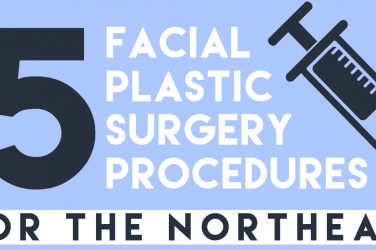The ketogenic diet, often simply called “keto,” has captured the attention of those seeking a new approach to health and wellness. At its core, keto focuses on fat consumption, minimizing carbohydrate intake to encourage the body to burn fat for energy instead of glucose. This metabolic state, known as ketosis, can have profound effects on your overall health, influencing everything from weight management to cognitive function. The keto diet offers a fascinating way to reshape your health by linking dietary choices with lifestyle changes. Here, we explore how integrating keto into your lifestyle could lead to lasting benefits and improved well-being.
Understanding the Keto Diet
Definition and Principles of the Ketogenic Diet
The ketogenic diet is defined by its high fat, moderate protein, and very low carbohydrate intake. By drastically reducing carbohydrate consumption—typically to less than 50 grams per day—the body is forced to look for an alternative fuel source. This shift causes your body to enter ketosis, a natural metabolic state where fat is broken down into ketones in the liver and used for energy.
The primary principle behind keto is to adjust your body’s metabolic pathway from relying on glucose to becoming efficient at burning fats. This is not only crucial for weight loss but also plays a significant role in energy production and brain function. For more insights, you can explore https://www.drberg.com/blog.
Basic Macronutrient Ratios and Their Purposes
In a typical ketogenic diet, about 70-80% of your daily caloric intake comes from fats, 15-20% from proteins, and only 5-10% from carbohydrates. This ratio can vary based on individual health goals and activity levels, but the drastic reduction in carbs remains constant.
Fats become the primary energy source, proteins are sufficient to support muscle health without being excessive, and carbohydrates are minimized to maintain ketosis. By adhering to these ratios, the body is able to sustain ketosis, leading to more consistent energy levels and potential health benefits.
Keto and Physical Health
Impact on Weight Management and Metabolic Health
One of the most sought-after benefits of the keto diet is its ability to help with weight loss more effectively than many other diets. When in ketosis, the body becomes incredibly efficient at burning fat. Moreover, the diet naturally reduces appetite due to its satiating macronutrient mix, which can lead to a lower calorie intake without the discomfort of feeling hungry.
Additionally, keto has a positive impact on metabolic health. The state of ketosis encourages the body to metabolize fat and use it as a primary energy source, which can improve metabolic flexibility—a crucial factor for overall metabolic health.
Benefits for Cardiovascular Health
Although it might seem counterintuitive given its high fat content, the keto diet can have beneficial effects on cardiovascular health. Studies have shown that keto can lead to a reduction in levels of triglycerides, LDL cholesterol (often referred to as “bad” cholesterol), and blood pressure, while increasing levels of HDL cholesterol (“good” cholesterol). These changes are significant risk reducers for cardiovascular diseases.
Potential Effects on Diabetes and Insulin Sensitivity
For individuals with type 2 diabetes, the ketogenic diet offers particular benefits. By significantly reducing carbohydrate intake, the keto diet can lower blood sugar and insulin levels dramatically. This reduction can improve insulin sensitivity and potentially reduce or even eliminate the need for diabetes medication, under medical supervision.
The changes induced by keto in terms of glucose and insulin management make it a compelling dietary strategy not just for those looking to lose weight but also for those aiming to manage or prevent chronic illnesses.
Keto and Mental Health
Impact on Brain Health and Cognitive Function
The ketogenic diet’s influence extends beyond physical health, significantly affecting brain health and cognitive functions. The brain typically relies on glucose for energy, but it can efficiently use ketones when carbohydrate intake is limited. Ketones provide a more stable energy source for the brain, which can lead to improved cognitive functioning. Research indicates that this shift can enhance memory, focus, and processing speed.
Additionally, the anti-inflammatory properties of ketones can reduce oxidative stress in the brain, which is beneficial for long-term brain health and has been linked to a lower risk of neurodegenerative diseases like Alzheimer’s and Parkinson’s.
Potential Benefits for Mood Stabilization and Mental Clarity
Beyond cognitive function, keto is known for its potential to stabilize mood. Fluctuations in blood sugar levels can affect your mood, and by stabilizing these levels, the ketogenic diet can lead to more balanced energy throughout the day. This stabilization can be particularly beneficial for individuals experiencing mood disorders such as depression or bipolar disorder. Anecdotal evidence and preliminary studies suggest that the consistent energy supply provided by ketosis can enhance overall mood and well-being.
Adapting Keto to Your Lifestyle
Practical Tips for Starting and Maintaining a Keto Diet
Adopting a ketogenic lifestyle requires careful planning and commitment. Begin by familiarizing yourself with which foods fit within a keto framework and which don’t. Stocking your pantry with keto-friendly staples such as high-quality fats, proteins, and low-carb vegetables is essential. Additionally, investing in a good cookbook or downloading a keto app can provide guidance and inspiration. The Centers for Disease Control and Prevention (CDC) offers tips on developing healthy eating habits that can complement a ketogenic lifestyle.
Meal Planning and Preparation Tips
Meal planning is crucial on a keto diet. Plan your meals weekly, and prepare in advance to avoid the temptation of off-plan eating. Cooking in batches and using portion-control containers can help manage your macronutrient intake and keep you on track. Include a variety of foods to ensure nutritional balance and prevent boredom with your diet.
How to Handle Social Situations and Dining Out
Social gatherings and dining out can pose challenges. When attending a social event, consider eating beforehand if you’re unsure about the available food options. When dining out, don’t hesitate to ask for modifications to dishes, such as substituting starchy sides with extra vegetables or requesting meals cooked in butter or olive oil. Most restaurants accommodate dietary restrictions, especially when they are health-related.
Conclusion
The ketogenic diet is more than a temporary eating trend; it is a lifestyle that can significantly improve your physical and mental health. By understanding the principles of keto and learning how to effectively integrate it into your lifestyle, you can harness its benefits for weight management, metabolic health, cognitive function, and mood stabilization. If you’re considering starting the keto diet, consult with a healthcare professional to ensure it’s the right fit for your health needs and to plan it in a way that’s sustainable and beneficial for you. Embrace the journey of learning how your body responds to this powerful dietary adjustment, and you may find profound benefits that extend well beyond simple weight loss.







